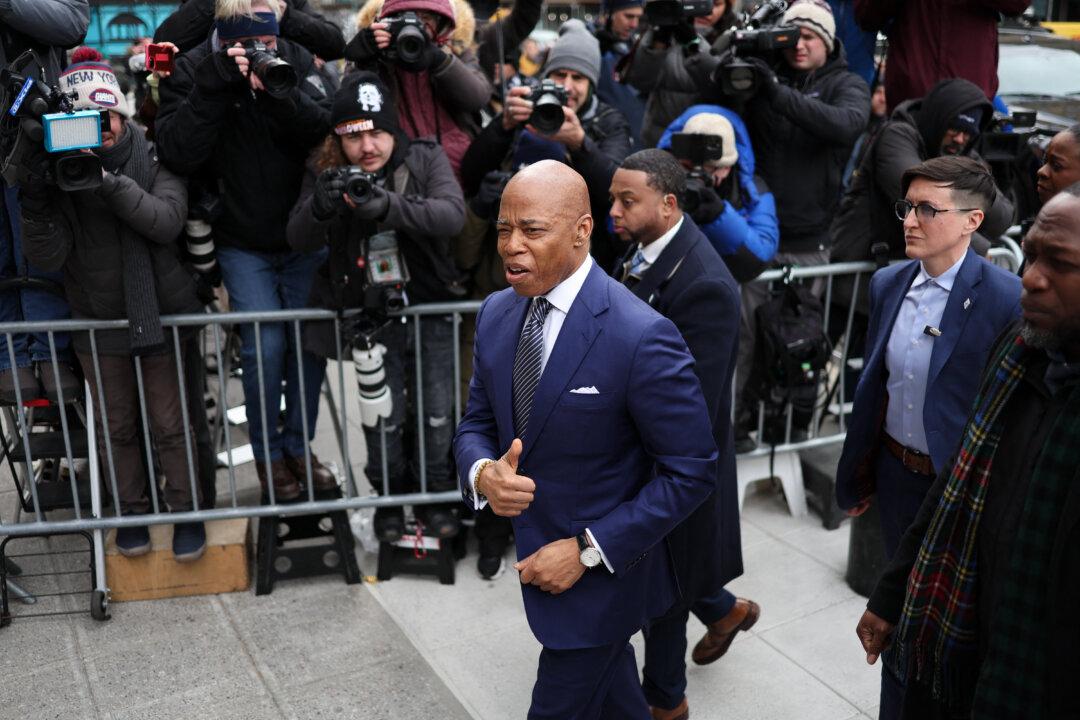A federal judge on Feb. 21 vacated an upcoming trial for New York City Mayor Eric Adams but declined to dismiss the charges against Adams for now.
U.S. District Judge Dale Ho said that in light of the U.S. Department of Justice (DOJ) requesting the charges be dismissed and Adams consenting to the request, “it is clear that trial in this matter will not go forward on April 21” as scheduled.





